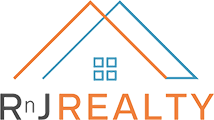Forecasting the Future of Real Estate: Trends and Developments for the Next Decade
As we stand at the cusp of a new era, the real estate landscape is poised for transformation over the next decade. Anticipating future trends and developments is crucial for industry stakeholders, from investors and developers to homeowners and renters. Let’s explore some predictions and insights into what the next 10 years may hold for real estate:
1. Shift Towards Sustainable and Smart Cities
With a growing focus on environmental sustainability and technological innovation, we can expect to see a significant shift towards sustainable and smart cities. Urban planning and development will prioritize energy efficiency, green spaces, and smart infrastructure to enhance livability and resilience.
2. Rise of Remote Work and Flexible Living Spaces
The rise of remote work and flexible work arrangements is likely to reshape the demand for housing. As more people opt for telecommuting and remote employment, there will be an increased emphasis on homes with dedicated office spaces, high-speed internet connectivity, and flexible living arrangements that cater to evolving lifestyle needs.
3. Embrace of Co-Living and Co-Working Spaces
The sharing economy will continue to gain traction in the real estate sector, with the rise of co-living and co-working spaces. These communal living and working environments offer affordability, convenience, and a sense of community, appealing to a diverse range of demographics including millennials, digital nomads, and empty nesters.
4. Focus on Wellness and Health-Centric Design
Health and wellness will take center stage in real estate design and development. From biophilic architecture and wellness amenities to air and water purification systems, buildings will be designed with the health and well-being of occupants in mind. This trend reflects a growing awareness of the importance of holistic living environments.
5. Infrastructure and Housing Development Projects
Looking ahead, planned infrastructure and housing development projects will play a pivotal role in shaping the real estate landscape. Major infrastructure initiatives such as transportation upgrades, urban redevelopment, and mixed-use developments will drive growth and transformation in both urban and suburban areas.
In conclusion, the next decade promises to be a period of significant evolution and innovation in the real estate sector. From sustainable and smart cities to the embrace of remote work and flexible living spaces, the trends and developments forecasted are poised to redefine the way we live, work, and interact with our built environment. By staying attuned to these predictions and developments, industry stakeholders can position themselves for success in an ever-changing market.



